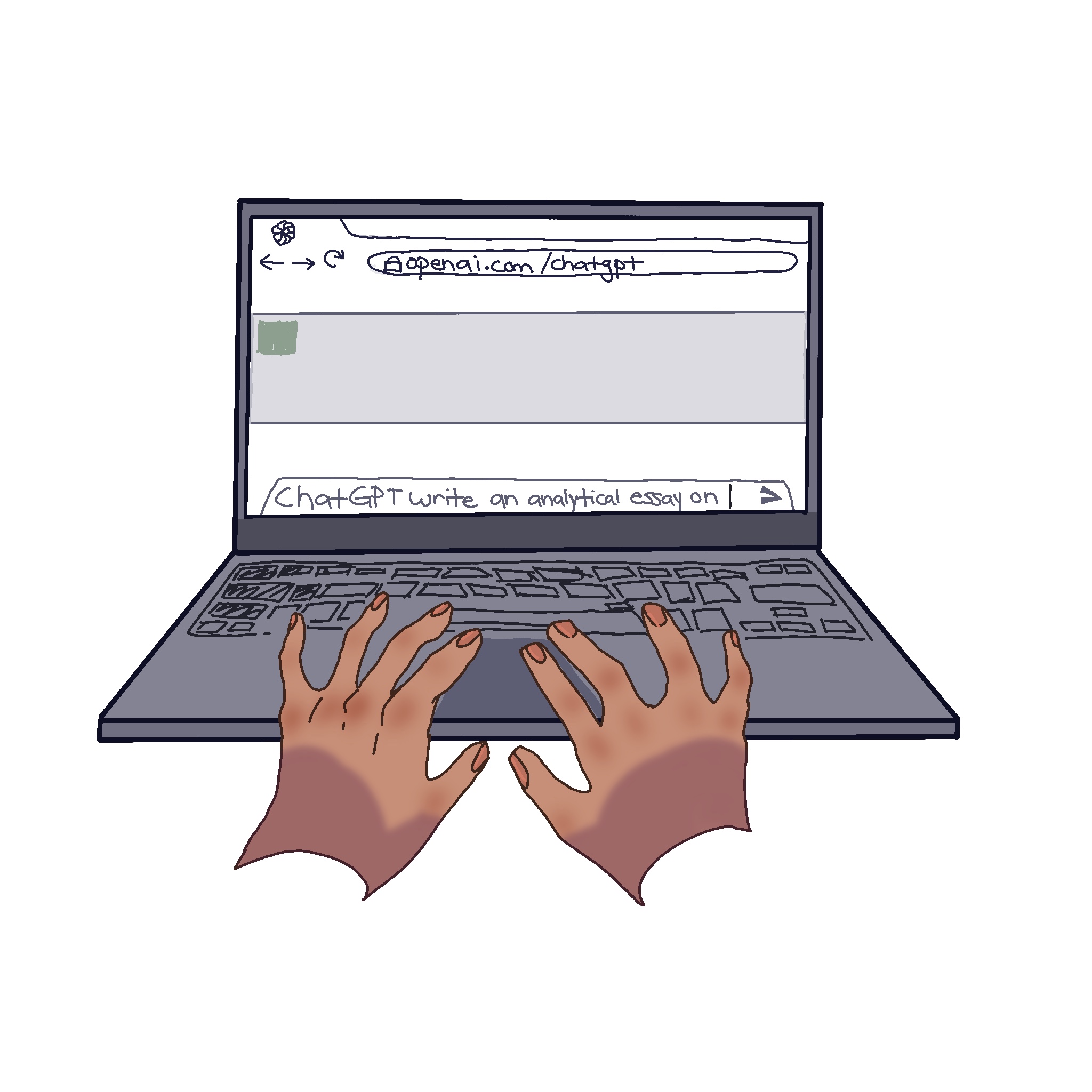
In the last two months, a new artificial intelligence model, known as ChatGPT (Generative Pre-Trained Transformer), has taken the internet by storm. ChatGPT is an open-source AI capable of having a semi-realistic conversation with the person on the other side of the screen. Although the world is amazed by this incredible innovation in interactable intelligence, many have also raised questions and concerns about the nature and application of this model. ChatGPT presents a dilemma for us students: we appreciate the potentially life-changing technological development, but have reservations and questions regarding its implications on creativity and academic integrity.
Over the last ten years, technology and education have shared an increasingly tenuous relationship. Programs such as Grammarly have repeatedly been at the center of controversy on school boards and newsletters. Despite this, app developers have continued to launch more programs utilizing machine learning.
Recently, ChatGPT has become a heated topic because students are reportedly using the program to help them write essays for English and History classes, prompting discus-sion on whether schools should ban the program.
First of all, we’d like to start by addressing the big metaphysical question: can ChatGPT “think?” Well, no. ChatGPT’s, or any modern computer’s fundamental logic confines it to only produce outputs in response to human inputs. It just has an exceptionally good rulebook for that purpose. This is because human thinking is fundamentally different, which is why we don’t need to worry about ChatGPT gaining a consciousness and taking over the world (at least, not yet). Its “intelligence” is merely the result of a highly complex mechanical system trained on an enormous dataset to produce texts highly similar to human-generated ones.
However, the fact that ChatGPT is not conscious does not diminish its social ramifications. Think about it: are we ever privy to the inner thoughts of other humans? No, all that is available to us is their “outputs” in response to our “inputs.” So, we theoretically wouldn’t be able to tell the difference between a text from our best friend and one generated by ChatGPT.
Besides such existential questions, in terms of adverse effects on day-to-day academic integrity, we would like to argue that ChatGPT has pointed schools in a positive direction. We could utilize ChatGPT’s capabilities in a way that doesn’t violate academic integrity.
ChatGPT has, so far, improved the English class experience rather than worsened it. In The Atlantic article “The End of High-School English,” English Teacher Daniel Herman writes that ChatGPT “may signal the end of writing assignments altogether.”
However, even if ChatGPT renders most conventional writing assignments obsolete, other forms of writing can still retain their value. ChatGPT has forced us to re-evaluate how writing is taught and can help us change English education for the better. In an article written by Dean of Academic Affairs Anne Bruder in Education Week, Bruder describes how her own English classes have evolved after the emergence of ChatGPT. She has replaced conventional 5-paragraph essays with “thesis-seeking and exploratory assignments” designed to prompt students to reflect on their views on literature and the world. Dr. Bruder writes that the old model’s “wooden structure” and “simplistic epistemology” misleadingly “tells students any truth can be revealed with three bits of evidence and a tidy conclusion.”
In fact, I would argue that the 5-paragraph essay structure hinders students from learning because it forces them to prioritize format over content. I believe that ChatGPT is a blessing for students because it has encouraged educators to create assignments that are more conducive to student learning.
For teachers, ChatGPT presents a new, exciting possibility to enhance the classroom experience and streamline tedious work. For example, teachers could use ChatGPT to write high-quality lesson plans or quizzes efficiently. AI-generated quizzes would also mean new quizzes every year.
For students, while ChatGPT could be a useful tool (for instance, by offering a conversation partner for language learning), student use should be restricted until we are able to establish proper regulations. Still, I am hopeful that students will eventually be able to freely use ChatGPT without violating academic integrity
ChatGPT is here to stay, and will only continue to advance. Deerfield should make an effort to integrate ChatGPT into its curriculum, as the symbiosis between technology and education is how we stay relevant—and improve the learning experience—in a rapidly changing world.

